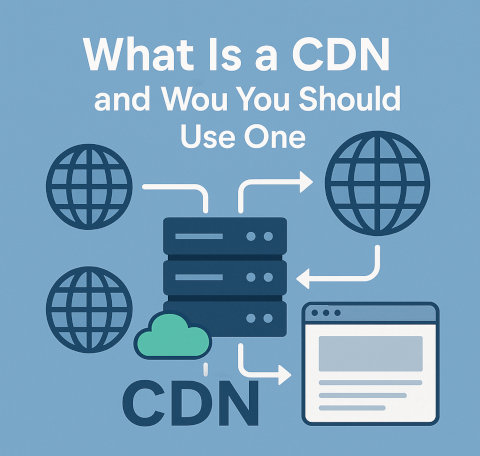What Is a CDN and Why You Should Use One
If you've ever wondered how websites load faster in some regions than others, the answer often lies in a technology called CDN. A Content Delivery Network plays a crucial role in modern web performance, ensuring that your site's or app's content is delivered quickly, reliably and securely to users anywhere around the globe, at any time.

What Is a CDN?
A CDN (Content Delivery Network) is a system of distributed servers strategically placed across different geographic locations in the world. Its primary purpose is to deliver web content to users faster and more efficiently based on their location.
Instead of all users accessing your website from a single central server, a CDN allows users to connect to a nearby edge server. This reduces latency and improves the speed and reliability of content delivery.
How a CDN Works
When a user requests a resource, like an image, video or web page, the CDN serves it from the server physically closest to the user. This is made possible through a network of proxy servers and data centers.
CDNs work by caching static content such as HTML, CSS, JavaScript and images on these edge servers. Dynamic content can also be optimized depending on the CDN provider's capabilities.
Key Benefits of Using a CDN
- Faster Load Times: Through a CDN, content is served from a server close to the user, reducing delays caused by long-distance data transmission.
- Improved Availability: CDN servers help balance traffic and prevent overload on your origin server, especially during traffic spikes.
- Enhanced Security: CDNs offer built-in protection against DDoS attacks, data breaches and other threats.
- Reduced Bandwidth Costs: By caching content, CDNs lower the amount of data your origin server has to deliver, saving bandwidth.
- Better User Experience: Faster websites mean happier users and lower bounce rates.
Common Use Cases for Content Delivery Networks
- Streaming video and audio content.
- Delivering images and static assets like CSS and JavaScript.
- Accelerating websites with global audiences.
- Securing content with HTTPS and access controls.
Popular CDN Providers
Here is a list of some of the most popular CDN providers:
Does Your Website Need a CDN?
If your website serves users from multiple geographic regions or handles large volumes of traffic, a CDN is highly recommended. Even smaller websites can benefit from faster load times and increased uptime.
Using a CDN is particularly crucial if your site hosts large files like videos or image/document downloads, runs web apps or supports real-time data like gaming or financial dashboards.
How to Start Using a CDN
Setting up a CDN is usually straightforward. Most providers offer integrations with popular web hosts and CMS platforms like WordPress, Joomla and Magento. You simply sign up, connect your domain and start caching content. Some even offer a free tier for small websites.
In short, CDNs are an essential tool for improving website performance, security and reliability. Whether you run a personal blog or a high-traffic eCommerce store, using a CDN can significantly enhance your site's speed and user experience while reducing server load and security risks.
